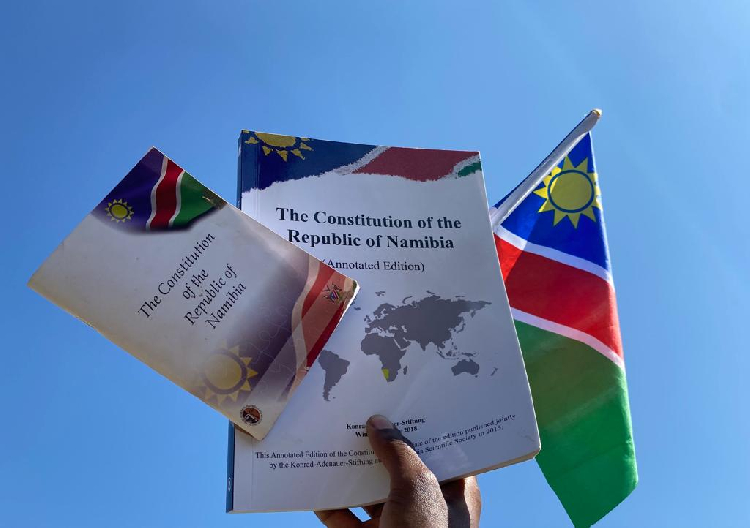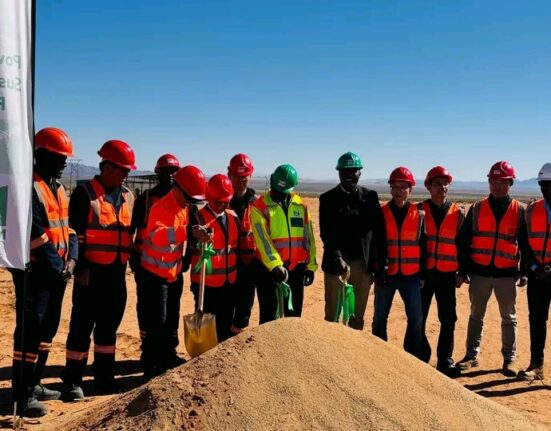Namibia’s Constitution, adopted on March 21, 1990, marked a pivotal moment in the country’s transition from colonial rule and apartheid to a democratic, free, and sovereign nation. Crafted during a time of monumental change, it laid the foundation for the country’s governance, focusing on human rights, democracy, and the principles of justice. As the supreme law of the land, the Constitution not only addresses Namibia’s historical challenges but also provides a framework for shaping a more just, inclusive, and prosperous future.
Historical Background: The Struggle for Independence
To understand the importance of Namibia’s Constitution, it’s crucial to look at the country’s historical context. Namibia’s path to independence was long and tumultuous, shaped by centuries of colonialism, apartheid policies, and racial segregation. Under German colonial rule (1884-1915), Namibia suffered from exploitation and violence, including the genocidal massacre of the Herero and Nama peoples. After World War I, the territory was mandated to South Africa by the League of Nations, where it continued to experience discriminatory policies similar to those of apartheid.
Namibia’s liberation struggle was largely led by the South West Africa People’s Organization (SWAPO), which became the dominant political force in the country. The fight for independence gained momentum in the 1960s, and over the next few decades, SWAPO led a combination of armed resistance and diplomatic efforts to end South African occupation. By the late 1980s, international pressure on South Africa was mounting, and the country’s apartheid system was facing increasing resistance both internally and globally.
After a negotiated settlement known as the Tripartite Accord in 1988, Namibia’s first democratic elections were held in 1989, marking a turning point for the country. On March 21, 1990, Namibia officially gained independence, and the newly established government sought to create a Constitution that would reflect the aspirations of a liberated nation.
Crafting the Constitution: A National Dialogue
The drafting of Namibia’s Constitution was a product of a collaborative and inclusive process that sought to unify the country’s diverse population. After independence, the Namibian government prioritized the creation of a document that would promote democracy, human rights, and national reconciliation. In fact, the Constitution was drawn up with extensive public participation to ensure that the final document would be representative of all Namibians, regardless of ethnic or political background.
The Constitution was developed under the leadership of Sam Nujoma, the first president of Namibia, with contributions from various sectors of society, including political parties, civil society groups, religious organizations, and representatives from different ethnic communities. Nujoma and other leaders made it clear that the Constitution would serve as a means to heal the divisions caused by apartheid and to build a nation based on the values of fairness, justice, and equality.
A critical element of the drafting process was the inclusion of a Constitutional Conference in 1989, which brought together stakeholders from various Namibian communities to discuss the proposed provisions of the Constitution. The conference was a reflection of the democratic principles that would define Namibia’s post-independence society, ensuring that every group had a say in the nation-building process.
Key Features of Namibia’s Constitution
Namibia’s Constitution is widely regarded as one of the most progressive in Africa, and it has served as a model for other nations on the continent. Several key features make Namibia’s Constitution both unique and enduring in its commitment to democracy and justice.
1. Supremacy of the Constitution
The Constitution is the supreme law of the land, meaning all other laws and actions must align with its provisions. This principle ensures that the Constitution’s values—such as democracy, equality, and human rights—remain central to the governance of the country.
2. Human Rights and Fundamental Freedoms
One of the Constitution’s most important provisions is its emphasis on human rights and freedoms. Chapter 3 enshrines a bill of rights, guaranteeing a wide range of fundamental rights for all Namibians, including the right to life, dignity, equality before the law, and the freedom of expression, association, and movement. This was an essential departure from the discriminatory apartheid policies that denied basic human rights to the majority of Namibians.
3. Separation of Powers and Democratic Governance
The Constitution establishes a clear separation of powers among the three branches of government: the executive, legislature, and judiciary. It creates a multi-party democracy with an independent judiciary to safeguard the rule of law. The President is both the head of state and government, while the National Assembly (the legislative body) is responsible for passing laws, and the Supreme Court ensures that the government adheres to constitutional principles.
One of the unique aspects of Namibia’s political system is its proportional representation in the National Assembly, which ensures that smaller political parties have a voice in the legislative process, fostering inclusivity and preventing the dominance of one political party or group.
4. National Unity and Reconciliation
Given Namibia’s history of division under apartheid, the Constitution emphasizes national unity and reconciliation. The government actively promotes policies designed to overcome ethnic and racial divides, recognizing the country’s diversity and fostering cooperation among all Namibians. The Constitution’s emphasis on reconciliation is also reflected in its commitment to land reform, which aims to address historical injustices.
5. Democratic Elections and Political Participation
Namibia’s Constitution guarantees free and fair elections through universal suffrage, allowing all citizens over the age of 18 to participate in the democratic process. Regular elections are held for both the presidency and the National Assembly, ensuring that political power remains in the hands of the people. The use of proportional representation in the elections also means that the political spectrum in Namibia is diverse, representing different interests and viewpoints.
6. Environmental Protection and Sustainable Development
Namibia’s Constitution contains provisions that emphasize the protection of the environment and sustainable development, recognizing that the country’s natural resources must be used in ways that benefit both present and future generations. These provisions are particularly important given Namibia’s unique environmental challenges, including desertification and water scarcity, which require careful management of natural resources.
7. Social Justice and Economic Equity
While the Constitution lays the groundwork for political freedom, it also addresses social justice by promoting equitable economic development. It seeks to create an inclusive economy that addresses inequality, poverty, and unemployment. The Constitution encourages land redistribution, education reform, and social services to ensure a better quality of life for all Namibians, especially those who were disadvantaged under apartheid.
Namibia’s Constitutional Courts: Upholding Justice
Namibia’s judiciary plays a critical role in upholding the Constitution, ensuring that laws and policies conform to its principles. The Supreme Court is the highest court in the country, and it is responsible for interpreting the Constitution and making binding decisions on constitutional matters. The Constitution also created a High Court to deal with major legal cases and violations of rights.
Over the years, Namibia’s courts have shown a deep commitment to upholding the rights of individuals, interpreting the Constitution in ways that protect civil liberties and human dignity. Judicial independence is guaranteed, and the courts often serve as an important check on the power of the executive and legislature.
International Recognition: A Model for Other Nations
Namibia’s Constitution has been lauded for its progressive approach to human rights, democratic governance, and social justice. It has received international praise for the peaceful transition of power and the commitment to unity and reconciliation. Namibia’s example has inspired other countries, particularly in Africa, as they seek to transition from oppressive regimes to democratic societies.
The Constitution has also provided a strong foundation for Namibia’s continued commitment to regional peace and economic integration. The country is a member of several international organizations, including the African Union (AU), the Southern African Development Community (SADC), and the United Nations (UN), where it continues to advocate for democracy, human rights, and sustainable development.
Challenges and Ongoing Reforms
While Namibia has made significant progress since independence, challenges remain in fully realizing the goals set out in the Constitution. Issues such as land reform, poverty, unemployment, and inequality continue to pose significant hurdles. However, Namibia’s government remains committed to addressing these challenges through constitutional mechanisms, such as the Land Reform Programme and various social welfare initiatives.
Namibia’s Constitution stands as a powerful testament to the country’s commitment to building a democratic, inclusive, and just society. It reflects the aspirations of a nation that has emerged from the shadow of colonialism and apartheid and is striving to build a better future for all its citizens. The Constitution is not only the cornerstone of Namibia’s legal and political systems but also a symbol of its resilience, unity, and the ongoing quest for peace, equality, and prosperity.
As Namibia continues to evolve, its Constitution will remain central to its development, guiding the country in its pursuit of a brighter and more equitable future. The Constitution’s principles of democracy, justice, and human rights will continue to serve as the foundation upon which Namibia’s national identity is built.
Join 'Namibia Today' WhatsApp Channel
Get the breaking news in Namibia — direct to your WhatsApp.
CLICK HERE TO JOIN












